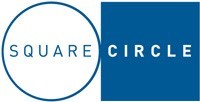Whistleblowing – A Guide to Compliance: Part 2
Client Alert | 3 min read | 04.01.21
Crowell & Moring LLP’s 2021 series of client alerts: Whistleblowing – A Guide to Compliance is intended to provide companies with a practical guide to help them comply with their obligations under the EU Whistleblower Directive. Via a monthly alert, Crowell & Moring LLP will explain the different steps that companies need to take for compliance and emphasize various points for consideration.
STEP #2: Understanding the importance of setting up an effective internal whistleblowing system
Will implementing the EU Whistleblower Directive be a burden or an opportunity for your organization?
During a webinar organized by Crowell & Moring LLP on March 22, 2021, in collaboration with the Belgian Association of Company Lawyers (IBJ/IJE) and Square Circle, almost 70% of our respondents saw the EU Whistleblower Directive as an opportunity.
Setting up an effective internal whistleblowing system: a burden or an opportunity?
Companies should indeed see the obligations set out in the EU Whistleblower Directive regarding internal reporting channels as an opportunity rather than a burden.
According to the Directive, EU member states are supposed to encourage whistleblowers to use internal channels first (provided that those internal channels are able effectively to address the breach and there is no fear of retaliation), before they report through external channels. This approach gives an advantage to companies – allowing them the chance to sort their problems out in private. However, the Directive falls short of making this mandatory, as it confirms that whistleblowers may choose the most appropriate reporting channel depending on the individual circumstances of the case. This means that, in practice, the perception of the whistleblower as to the reliability and efficacy of the internal reporting channels and procedures is of the utmost importance.
Having a good internal tool to facilitate the detection of possible misconduct at an early stage and to maintain internal control is thus to be recommended. It will help you avoid external reporting and public disclosures, which could harm your company’s reputation and could even result in sensitive or confidential information (such as trade secrets) being leaked. Indeed, it is important for companies to understand that if a whistleblower resorts to external reporting, he or she is protected – under certain conditions – even when publicly disclosing trade secrets.
In short, by setting-up internal reporting channels, and by diligently following up on incoming reports, you will improve your company’s ability to remedy issues internally and reduce the risk that your company’s reputation or interests will be damaged by negative exposure.
And from a communication perspective?
The need to set up internal reporting channels can be seen as the perfect motivation for your company to improve its internal communications. Now is the time to take another look at your company’s internal “culture” and communication and management processes. Are they transparent and effective? This is important: even if the power to make company decisions lies formally with management, the power to move the company forward lies in the hands of each employee. Transparency and two-way communication with your employees is key.
In this way, the implementation of the EU Whistleblower Directive should be seen as an opportunity to check whether your management practices are “up to standard.” For example, you can ask yourself the following questions: Do you listen to your employees? Can they express themselves freely? Do they receive regular feedback? Are they well-informed? Have the rights and duties of all the members of your teams been clearly explained? Are norms and regulations being respected? Are there clear standards of excellence? Do you have good human resources management? Do your employees feel empowered? etc.
What makes one company excel when another fails is above all the commitment of its employees. And this commitment is based on trust: trust in oneself, trust in the hierarchy, trust in colleagues, and trust by customers and shareholders.
Beyond its legal obligations, the EU Whistleblower Directive raises a fundamental question relating to this trust. And this is why its implementation should be seen as an opportunity: by pushing companies to bring their internal communications “up to standard,” it could ultimately result in companies never having to manage a whistleblowing procedure – thanks to the open and adult corporate culture that is created and that allows issues to be prevented before they arise.
Later in this Client Alert Series we will cover these different aspects in more detail, with the help of experts in communication and management.
Action point #2: Organize an Internal Survey or listening sessions that will give you an insight into how your company’s employees view your internal communications.
***
Our team assists clients with the complete whistleblowing implementation process. For more information, please contact the professionals listed below.
This Alert #2 has been prepared and drafted in collaboration with Ludo Goethals, Square Circle.

Contacts
Insights
Client Alert | 3 min read | 02.27.26
On February 17, 2026, the U.S. Equal Employment Opportunity Commission (EEOC) filed a complaint against Coca-Cola Beverages Northeast, Inc., in the United States District Court for the District of New Hampshire, alleging that the company violated Title VII of the Civil Rights Act of 1964 (Title VII) by conducting an event limited to female employees. The EEOC’s lawsuit is one of several recent actions from the EEOC in furtherance of its efforts to end what it refers to as “unlawful DEI-motivated race and sex discrimination.” See EEOC and Justice Department Warn Against Unlawful DEI-Related Discrimination | U.S. Equal Employment Opportunity Commission.
Client Alert | 6 min read | 02.27.26
Client Alert | 4 min read | 02.27.26
New Jersey Expands FLA Protections Effective July 2026: What Employers Need to Know
Client Alert | 3 min read | 02.26.26



